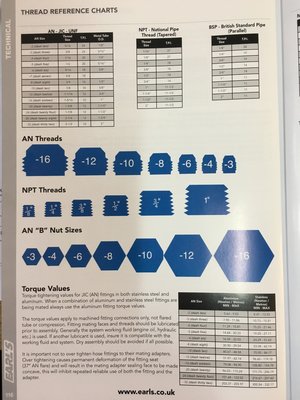Banjo bolt torque
3 posts
• Page 1 of 1
Hello Folks
can anyone inform me of the correct torque for brake caliper banjo bolts please
Regards
Bob
can anyone inform me of the correct torque for brake caliper banjo bolts please
Regards
Bob
I've got a deadline, at 73, I want to finish it before I die!
-

bloodknock - Fourth Gear

- Posts: 608
- Joined: 04 Jun 2012
I do it by feel, as was said by others the mating surfaces should not be scratched otherwise sealing will be difficult.
I understand you're doing work on the car, not on the bench.
As to your question, unfortunately still without answering precisely as you wished, you risk more strippping threads with a brass banjo than with a steel banjo... if you feel it starts stripping, best to stop and change the banjo bolt, as if it strips completely chances are you may get metal shards in the master cylinder, or worse leave some of the thread inside, which will be a MC out job (not pleasant, just did that on my street car...). If the threads have been elongated you may forget it and risk even more to strip it the next time. With a new one make sure it does not bottom out before pressing the copper/aluminum washers. Last the total compressed area determines the amount of effort to deform the washers for a given pressure and material (a wider washer will require more torque than a skinny one - you may use that to cheat a bit, but of course if you go too narrow you'll fall into other problems). You can always check for flatness your copper/alloy washers by polishing them on 1000 grit or finer on a flat glass (don't overdo it or you'll risk creating a slant, polish them in figure eight and turning them regularly and homogeneously).
Also, there are aluminium washers that may be used to seal, they may be softer than the copper ones you're using hence sealing with less banjo bolt torque.
good luck !
I understand you're doing work on the car, not on the bench.
As to your question, unfortunately still without answering precisely as you wished, you risk more strippping threads with a brass banjo than with a steel banjo... if you feel it starts stripping, best to stop and change the banjo bolt, as if it strips completely chances are you may get metal shards in the master cylinder, or worse leave some of the thread inside, which will be a MC out job (not pleasant, just did that on my street car...). If the threads have been elongated you may forget it and risk even more to strip it the next time. With a new one make sure it does not bottom out before pressing the copper/aluminum washers. Last the total compressed area determines the amount of effort to deform the washers for a given pressure and material (a wider washer will require more torque than a skinny one - you may use that to cheat a bit, but of course if you go too narrow you'll fall into other problems). You can always check for flatness your copper/alloy washers by polishing them on 1000 grit or finer on a flat glass (don't overdo it or you'll risk creating a slant, polish them in figure eight and turning them regularly and homogeneously).
Also, there are aluminium washers that may be used to seal, they may be softer than the copper ones you're using hence sealing with less banjo bolt torque.
good luck !
S4SE 36/8198
-

nmauduit - Coveted Fifth Gear

- Posts: 2006
- Joined: 02 Sep 2013
3 posts
• Page 1 of 1
Total Online:
Users browsing this forum: No registered users and 9 guests

